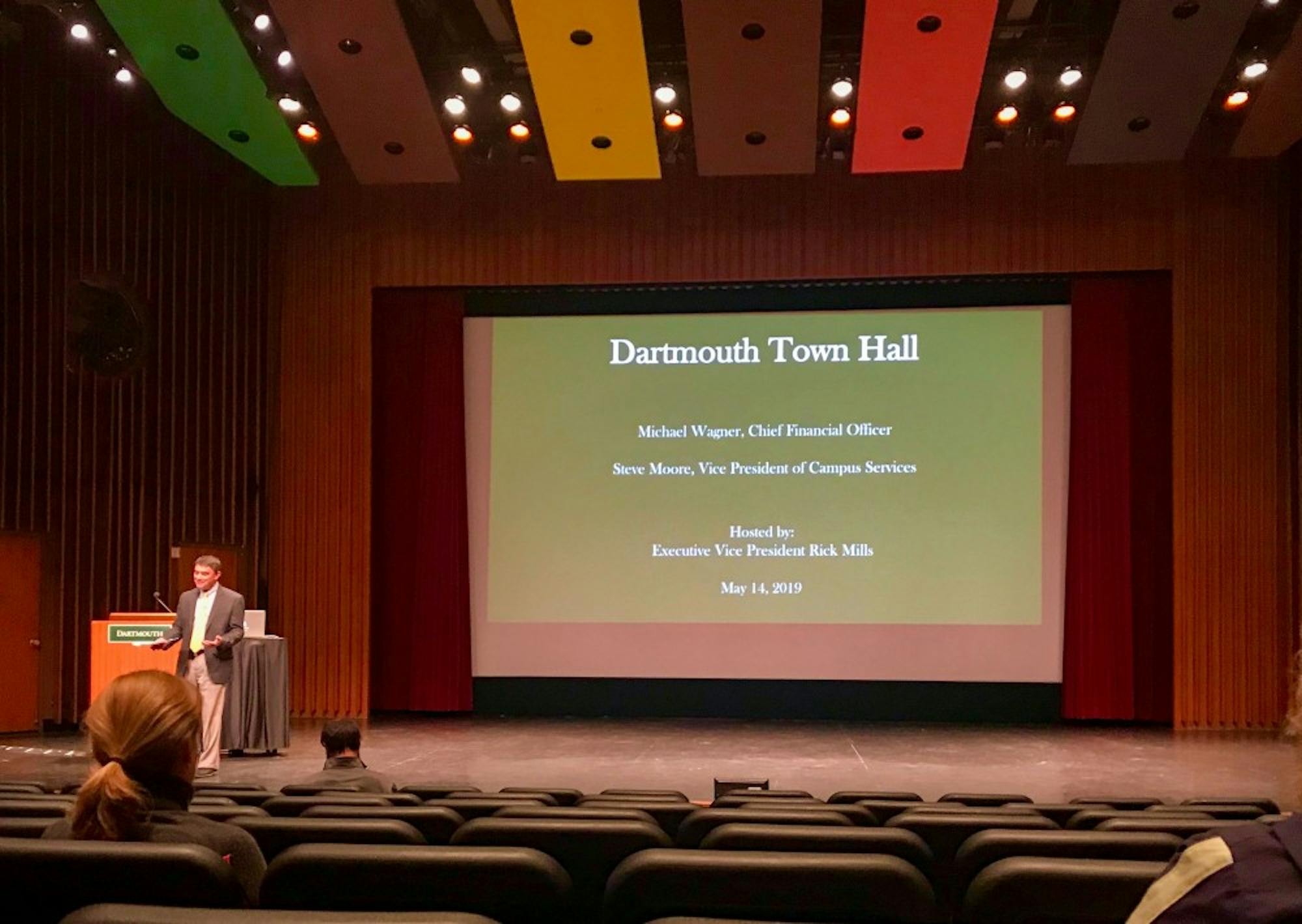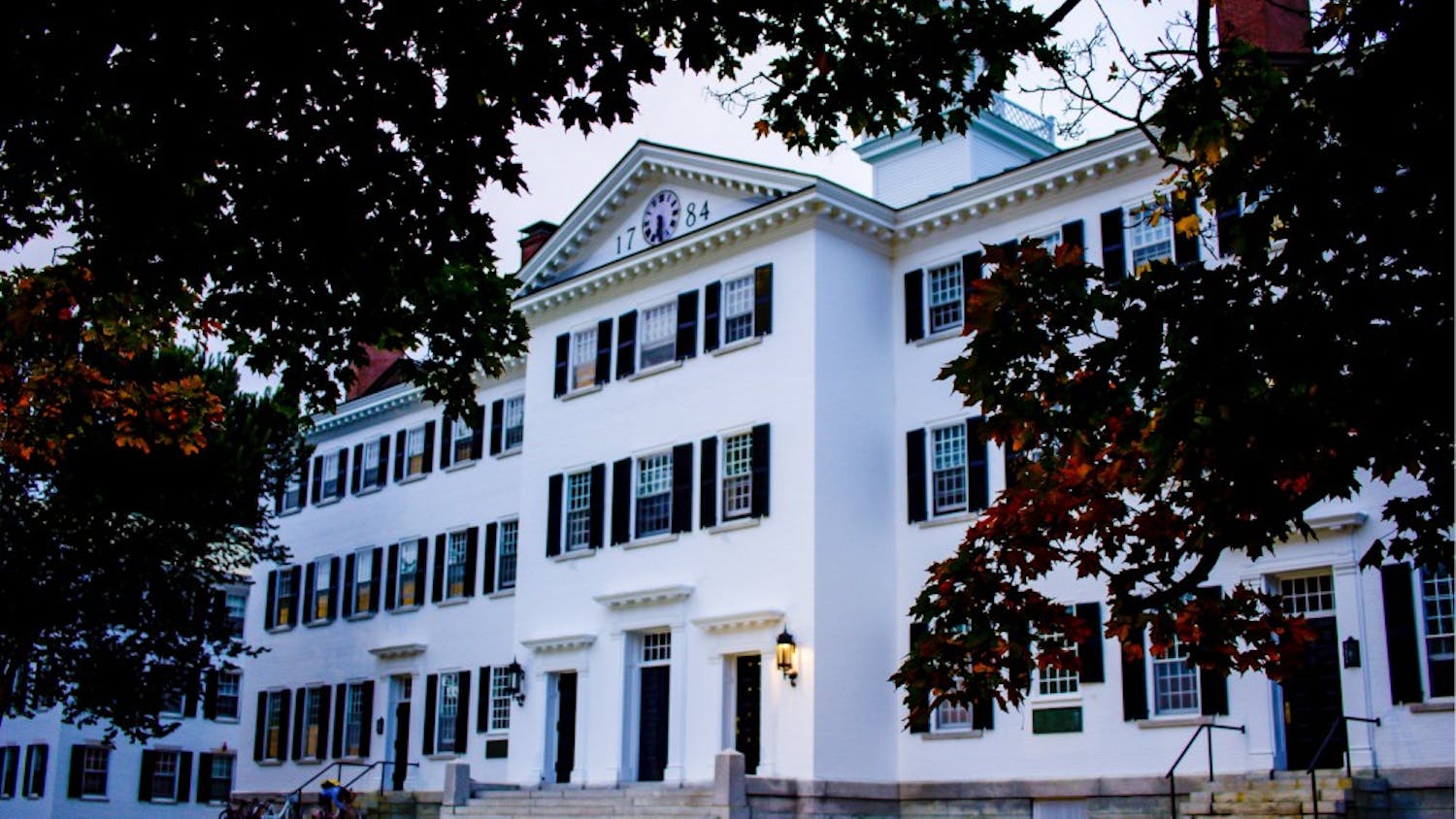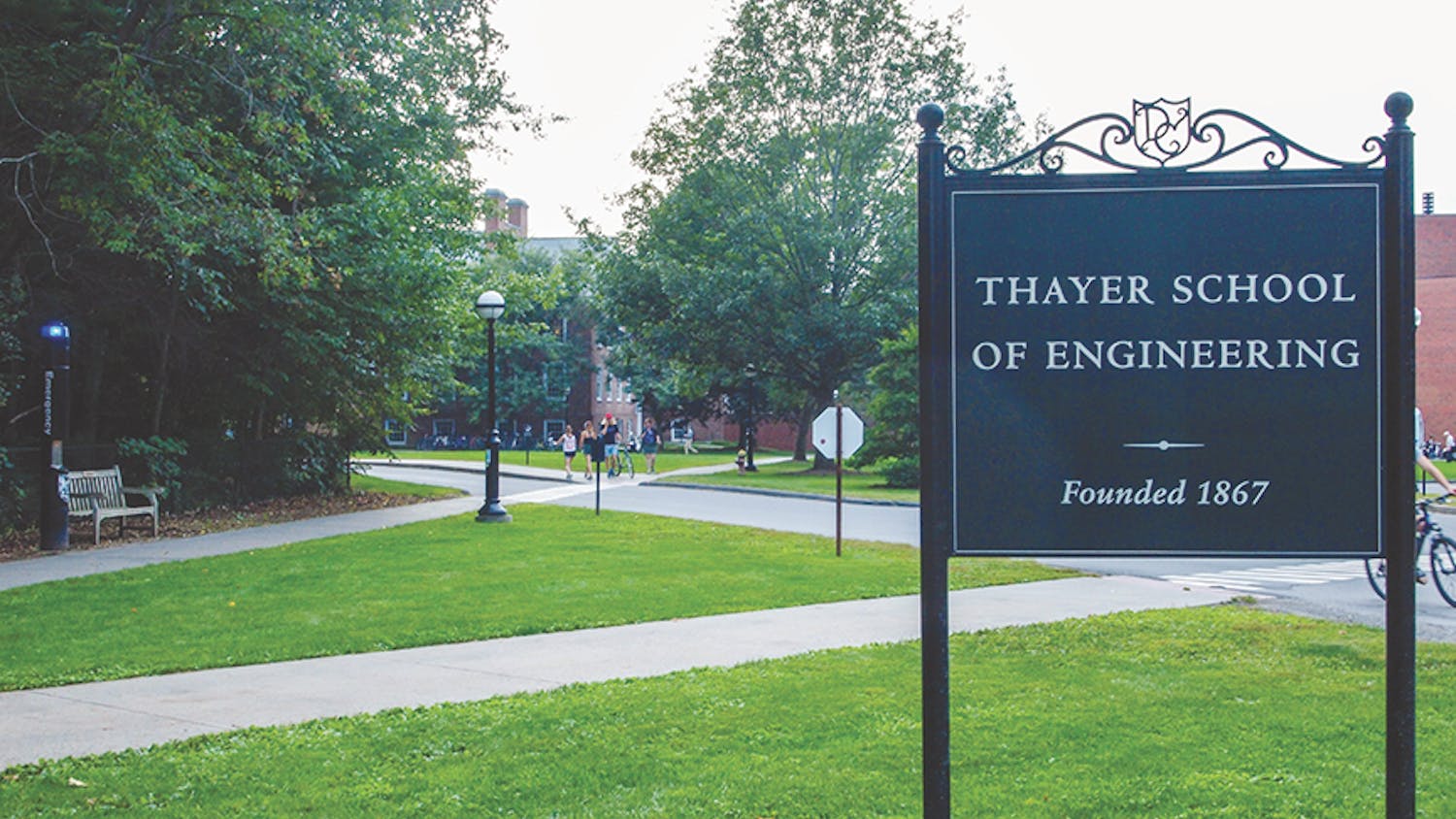On Tuesday, around 70 community members gathered in Spaulding Auditorium for a town hall to discuss Dartmouth’s 2019 financial report and 2020 financial plan, as well as the College’s strategic master plan for the next 20 years. Following a discussion of finances and an overview of the plan — led by chief financial officer Mike Wagner, executive vice president Rick Mills and vice president of campus services Steve Moore — some community members expressed optimism while others were left uncertain about how the College will address specific concerns.
Wagner discussed the last five years of Dartmouth budgets, noting that each budget has had a net surplus since 2014. He also discussed the College’s current financial goals, which include reducing a deficit caused by the operations at the Geisel School of Medicine and generating new revenue for possible deficits that the College might face in the next ten years. Wagner added that in recent years there has been “a negative growth of research funds” at Geisel, which has been caused by a shifting of funds from Geisel to the Dartmouth-Hitchcock Medical Center.
Wagner also noted that the College’s Call to Lead capital campaign is one of the current strategies Dartmouth is employing against possible deficits.
Another aspect of Dartmouth’s budget that Wagner discussed was tuition rates. Undergraduate tuition rates have increased about four percent in the past two years, placing Dartmouth slightly above the median among its peers in the Ivy League and tier one universities, but the College plans to maintain the current tuition rate, according to Wagner.
Moore then introduced the master plan — which is still in its early stages of development — and added that the College plans to announce the completed product to the public this fall. He announced that Dartmouth has partnered with the architectural firm Beyer Blinder Belle, which has completed master plans for other colleges such as Princeton University, Columbia University and Amherst College.
The plan is designed to evaluate all of the College’s land holdings, which range from the Moosilauke Ravine Lodge in Warren, NH to the vacant plots of land around DHMC.
The project will also include plans for a new dormitory that is to be built on the intersection of Crosby Street and East Wheelock Street, where the tennis courts and House Center A currently exist.
The Hanover Country Club could also be repurposed in the plan, as it is “losing a significant amount of money,” Moore said. He added that the Hanover Country Club will continue to operate as a golf course through 2020. However, its fate after 2020 will be determined by the master plan. Other land that could be repurposed includes Lewiston Lot, an area on the Vermont side of Ledyard Bridge that currently operates as a parking lot.
Graduate student housing was also mentioned several times during the town hall. The Rivercrest property, located north of the Hanover Country Club, is one of the areas being considered for future graduate student housing, Moore said.
According to Moore, another important priority for the College is to make the campus more “accessible and navigable,” which could include increased signage and renovations to existing buildings.
Moore said that a “big priority” for renovation is Dartmouth Hall. Locations like the former Dana Biomedical Library — which is undergoing renovation that will add faculty offices and a café — and a new Thayer School of Engineering building focused on computer science are also included in the master plan.
During the presentation, Moore reminded the audience that the plan is still in its early stages, and that the planning board seeks to “engage all members of the Hanover and Dartmouth communities in developing the plan.” He also said that the plan is designed to function well into the future, adding that the board was “broadly looking at all of the College’s holdings with a 10 to 50-year outlook in mind.”
During the question and answer portion of the town hall, some community members voiced concerns that they wanted to see addressed in the plan. Although there were multiple questions about transportation and traffic issues caused by pedestrians, Moore said that Dartmouth currently has no specific plans to address these issues. However, he added that transportation issues will be considered in the master plan.
After the presentation, alumni council member Sue Reed ’81 said that going to the town hall made her feel “more hopeful” about the master plan despite issues that she feels Dartmouth has not yet addressed. Reed said that the planning board should look more closely at deeper issues such as sustainability and institutional history.
“It was reassuring to hear that they will be looking closer at issues,” she said, adding, however, that she felt that this discussion was “mostly at surface level.”
Reed also added that the master planning team should take into account student wellness and incorporate relaxation areas into the geographical layout of Dartmouth.
Baker-Berry Library collections analyst and financial specialist Barbara Sterling said that she felt the financial discussion excluded a discussion of staff wages, and that the current master plan excluded important issues concerning staff, such as parking and transportation issues. Sterling added that she hopes the planning board will seriously consider staff concerns.




